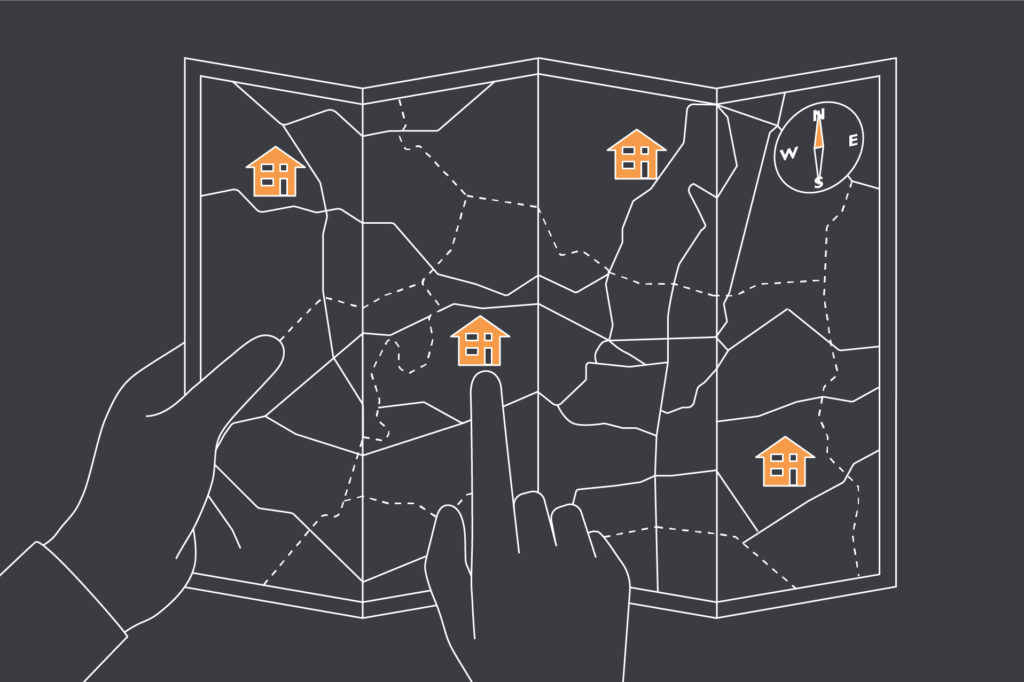Breaking up is hard to do, but breaking up with joint mortgages after divorce can be a whole new level of complicated. So, you’ve consciously uncoupled, and now you’re left wondering, where did our joint Netflix subscription go? Though you both signed on the dotted line of that Stroud Green terrace, dreaming of a future filled with cosy nights in and lazy Sunday mornings… alas. Love is fickle, and now you find yourself navigating the treacherous waters of separation. What’s next for that shared mortgage and Netflix plan? Davies and Davies are here to guide you through this murky sea of joint mortgages after divorce with a strong cup of tea and a tissue box full of joint mortgage know-how.

Go Dutch and split the house sale
When it comes to joint mortgages after divorce, there are a few possible scenarios to consider. The first option is to sell the property and split the proceeds. It’s like ripping off a plaster – quick, painful, but ultimately freeing. Selling the property allows both parties to walk away with their fair share of the equity and move on to greener pastures.
The big buyout bonanza
If selling is not an option – maybe you’re sentimentally attached to the home or the market is less than ideal – you could consider buying out your ex’s share. This involves one party taking over the mortgage and buying out the other’s equity in the property. If children are involved, this could be a sensible option with the least disruption to their daily lives if financially feasible. Proceed with caution when considering taking on the mortgage solo, and always weigh up the pros and cons with care.
Home-sweet-home together
Let’s not forget about everyone’s favourite option: the dreaded “let’s just keep things as they are for now” approach. This involves both parties continuing to share the mortgage payments and responsibilities post-breakup. This scenario can be somewhat tricky depending on your relationship with one another post break-up, so proceed with a healthy dose of scepticism and maturity here.

Deed of Trust fall?
But wait, there’s more! If you and your ex are on speaking terms, you could consider a Deed of Trust – also known as a Declaration of Trust. This legal document outlines each party’s rights and responsibilities regarding the property, including who pays what and who gets what in the event of a future sale. It’s like a prenup for property – not exactly romantic, but definitely practical.
Worst case scenario
Now, let’s address the elephant in the room – what if your ex simply stops paying their share of the mortgage? In this case, you could be left holding the financial bag and facing the terrifying prospect of dreaded repossession. To avoid this nightmare scenario, it’s crucial to communicate openly and honestly with your ex about their financial responsibilities post-separation.
Keep talking
It’s true, navigating a joint mortgage after divorce is a veritable minefield. Managing a joint mortgage after divorce requires careful consideration, communication, and planning. While the process may be complex and emotionally challenging, taking proactive steps to address the shared financial responsibilities can help both parties navigate this transition with clarity and confidence. You’ve got this!
Seeking guidance from legal and financial professionals can provide invaluable support and guidance during this challenging time. By approaching the situation with diligence and transparency, you can always work towards a resolution that protects your financial interests and paves the way for a shiny new chapter post-separation. Remember, we are always here to offer advice (and cups of tea).

Contact us:
mark@daviesdavies.co.uk – Sales Director (contact for sales, lettings and new homes)
katrina@daviesdavies.co.uk – Head of Property & Block Management (contact for property and block management)
020 3820 2492
Davies & Davies Estate Agents, 85 Stroud Green Road, London, N4 3EG
Article & images by Barefaced Studios
You might also want to read other useful blog articles by clicking here.
Please note that all content contained within our website is for informational purposes only. You should not construe any such information or other material as legal, tax, investment, financial, or other advice. All Content on this site is information of a general nature and does not address the circumstances of any particular individual or entity. We advise seeking professional advice from a legal, financial, or other professional.

If you’re on the hunt for property prices in North London, you’ve landed in the right place! We’ve done the legwork, diving deep into Zoopla’s latest data, so you don’t have to. Got your eye on something fancy or looking to bag a deal? Whether you’re looking to splurge or snap up a bargain, we’ve got the inside scoop on where you’ll get the best value for your money in North London. Let’s dive into North London’s priciest, and cheapest, postcodes.
Read More...
In North London’s competitive property market, it can be tricky to know if your home is priced just right. With prices on the rise and fewer homes available, you’d think selling would be easy. But despite an impressive 11.2% year-on-year price increase in May, only 1 in 20 asking prices were slashed by 9%. So, how can you tell if your home has been priced to sell or if it’s destined to languish on property portals? Let’s dive into the dos and don’ts of valuing your home and how to spot the warning signs of an inflated asking price.
Read More...
When it comes to selling your home, there’s nothing worse than giving potential buyers “the ick”—that gut-wrenching feeling that makes them want to run for the hills (or at least to the next viewing). Whether you’ve heard the phrase bandied about in your last relationship and wondered why they suddenly ghosted after you wore a pair of swimming goggles that one time, you get the gist: it’s a dealbreaker, a turn-off, a small but unavoidable reason to say “no thanks.” So, what are common property icks that make potential buyers swipe left on your home? Let’s dive into the 10 biggest offenders ranked by most common, according to a recent survey, and more importantly, how to avoid turning your property into a real-life House of Turn Offs.
Read More...Get in Touch
Opening Times
Mon – Thurs: 0900 – 1815
Fri: 0900 – 1800
Sat: 1000 – 1600
Sun: Appointments by request